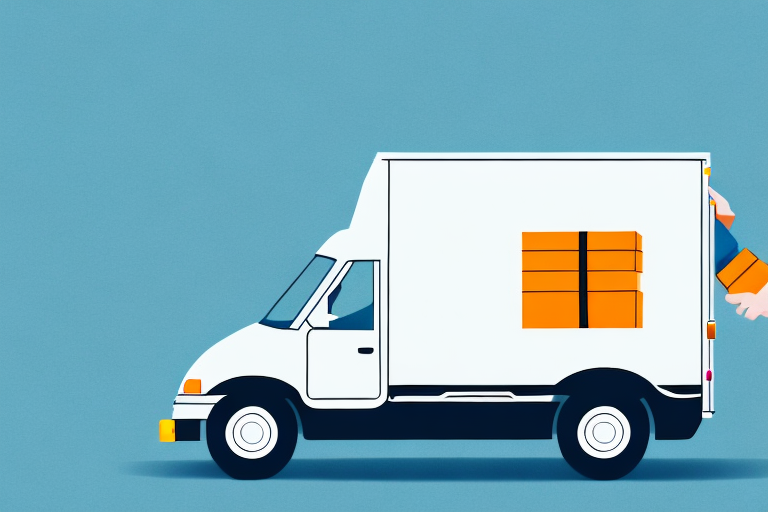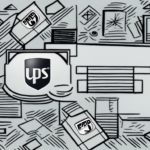What You Need to Know About Courier Companies
Courier companies, also known as parcel delivery or parcel shipping companies, are essential for businesses and individuals who need to transport packages between locations. While courier services have been around for thousands of years, the modern-day courier industry has evolved significantly with advancements in technology and globalization. This article provides an in-depth analysis of courier companies, covering their history, operations, types of services, factors to consider when selecting a courier, the importance of timeliness, comparisons of popular courier rates, packing tips, the role of technology, and future trends in the industry.
The Courier Industry: History and Evolution
Ancient Beginnings
Courier services have been integral to trade and communication since ancient times. In ancient Egypt, couriers transported papyrus scrolls and other goods, facilitating administrative and commercial activities. Similarly, the Greeks and Romans developed sophisticated courier systems to deliver messages, letters, and packages across vast empires.
Industrial Revolution and Technological Advancements
The 19th century brought significant changes with the development of railways and motor vehicles, making courier services faster and more reliable. The introduction of air transport in the 20th century further accelerated the industry's growth, enabling global package delivery within days.
Digital Age and Modern Innovations
Today, the courier industry continues to adapt to technological advancements, offering features like online delivery tracking and digital signatures. The rise of e-commerce has heightened demand for same-day and next-day delivery services, prompting investments in drones and autonomous vehicles to enhance delivery speed and efficiency.
According to the Statista report, the global courier market is expected to reach over $400 billion by 2025, driven by increasing online shopping and international trade.
How Courier Companies Operate
Package Collection and Processing
Courier companies operate by collecting packages from senders and delivering them to recipients. The process involves packaging, labeling, sorting, and transporting the package through various modes of transport, including motorcycles, vans, trucks, and aircraft.
Delivery Networks and Partnerships
Most courier companies maintain extensive delivery networks and employ their own staff. However, some partner with other transportation firms or utilize multiple transportation methods to optimize delivery routes and times. International deliveries may involve collaborations with local courier services to manage customs clearance and final-mile delivery.
Speed and Reliability
A key differentiator for courier companies is their emphasis on speed and reliability. Many offer guaranteed delivery timeframes and real-time tracking updates, providing transparency and accountability for both senders and recipients. This is crucial for businesses that depend on timely deliveries to maintain operations and customer satisfaction.
Types of Courier Services
Domestic Courier Services
Domestic services include same-day, next-day, and standard delivery options. Same-day delivery is ideal for urgent packages, while next-day delivery offers a balance between speed and cost. Standard delivery is the most affordable option, suitable for non-urgent shipments.
International Courier Services
International services handle cross-border shipments, offering various delivery options based on package size, weight, and destination. Express shipping is suitable for high-value or time-sensitive packages, whereas economy shipping is a cost-effective choice for less urgent deliveries.
Specialized Services
Many courier companies provide specialized services such as refrigerated shipping for perishable items, oversized package handling, and secure document delivery. These services cater to specific industry needs, ensuring that specialized requirements are met efficiently.
For more information on international shipping regulations, refer to the ICAO guidelines.
Selecting a Courier Company
Reputation and Reliability
Consider the courier company's reputation by reading online reviews and testimonials. A reliable courier should consistently meet delivery timeframes and handle packages with care.
Delivery Options and Rates
Evaluate the variety of delivery options offered, including same-day, next-day, and international services. Compare rates based on package size, weight, and destination to find a service that fits your budget and needs.
Additional Services
Look for additional services such as insurance, real-time tracking, and secure packaging materials. These features can provide extra protection and peace of mind for your shipments.
Environmental Impact
With growing environmental concerns, many courier companies are adopting eco-friendly practices. These include using electric or hybrid vehicles, biodegradable packaging materials, and implementing sustainable operational practices. Choosing a courier that prioritizes sustainability can align with your values and reduce your carbon footprint.
The Importance of Timeliness in the Courier Industry
Timeliness is critical in the courier industry, as delayed or lost packages can result in significant issues for businesses, including lost revenue and decreased customer satisfaction.
Delivery Guarantees
Many courier companies offer delivery guarantees that provide compensation or refunds if packages are not delivered on time. This assurance underscores their commitment to reliable service.
Optimizing Delivery Efficiency
To ensure timely deliveries, provide accurate package information, including weight, dimensions, and destination. Selecting the appropriate delivery service based on urgency and tracking the package throughout its journey are also essential practices.
Research from PwC highlights that efficient delivery processes are paramount for maintaining customer loyalty and operational success.
Comparison of Rates Among Popular Courier Companies
Comparing rates among leading courier companies helps identify the best option for your shipping needs. Factors influencing rates include package size, weight, destination, delivery speed, and additional services.
Major Courier Providers
- FedEx: Known for its extensive global network and fast delivery services.
- UPS: Offers a wide range of delivery options and reliable tracking.
- DHL: Specializes in international shipping with comprehensive customs support.
- USPS: Provides affordable rates for domestic and international shipments, especially for smaller packages.
Rate Comparison Considerations
When comparing rates, also consider the reliability and speed of each courier company. Some may offer lower rates but have a higher risk of delays or package damage, while others may charge more for faster and more secure delivery options.
For detailed rate comparisons, visit the official websites of each courier provider:
Packing and Shipping Tips
Proper Packaging
Ensure your package is securely packaged and labeled with both the recipient's and your return address. Use strong tape and consider adding cushioning materials like bubble wrap or packing peanuts to protect the contents during transit.
Choosing the Right Courier Service
Consult the courier's packaging guidelines to comply with their regulations. Selecting the appropriate service based on your package's weight and dimensions can impact both cost and delivery time.
Additional Protection
Options such as insurance and tracking provide extra security for valuable or sensitive items. These features offer peace of mind by safeguarding against loss or damage.
Refer to the Packaging Strategies for more detailed packing guidelines.
Technology in Courier Services
Automation and Robotics
Couriers are increasingly using drones and autonomous vehicles to expedite deliveries. These technologies reduce reliance on human drivers and can navigate traffic more efficiently, leading to faster delivery times.
Digital Tools and Tracking
Online booking systems and mobile apps streamline the courier process, offering real-time tracking and digital signatures. These tools enhance customer experience by providing accurate and timely updates on package status.
Artificial Intelligence and Route Optimization
AI-powered algorithms optimize delivery routes, reducing travel time and fuel consumption. This not only improves efficiency for courier companies but also contributes to lower carbon emissions.
A study by McKinsey & Company highlights the potential of AI in transforming delivery logistics.
Enhanced Security Measures
Advanced security technologies, such as smart locks and biometric authentication, ensure that only authorized individuals can access packages. These measures prevent theft and ensure that packages are delivered to the intended recipients.
Future Trends in the Courier Industry
Adoption of Eco-Friendly Practices
The future of the courier industry is leaning towards sustainability. Increased use of electric vehicles, biodegradable packaging, and other eco-friendly practices are expected to reduce the industry's environmental impact.
Integration of Advanced Technologies
Continued advancements in AI, machine learning, and robotics will further optimize delivery routes, enhance package tracking, and improve overall operational efficiency. These technologies will enable couriers to handle higher volumes with greater precision.
Expansion of International Services
As global trade and e-commerce continue to grow, international courier services will expand to meet the increasing demand for cross-border deliveries. Enhanced logistics networks and better customs handling will support this growth.
Personalization and Customer Experience
Couriers will focus more on personalized services, offering tailored delivery options and improving customer interaction through better support systems and user-friendly platforms.
According to a report by Forbes, these trends will shape the future landscape of the courier industry, making deliveries faster, greener, and more aligned with customer expectations.
Conclusion
Courier companies are a vital component of modern commerce, enabling efficient transportation of packages globally. The industry has evolved from ancient courier systems to sophisticated, technology-driven operations that prioritize speed, reliability, and sustainability. By understanding the various types of courier services, factors to consider when selecting a provider, and the technological advancements shaping the industry, businesses and individuals can make informed decisions to meet their shipping needs effectively. As the courier industry continues to innovate and adapt, it will remain essential in supporting both local and international trade, ensuring that packages are delivered safely and on time.




















